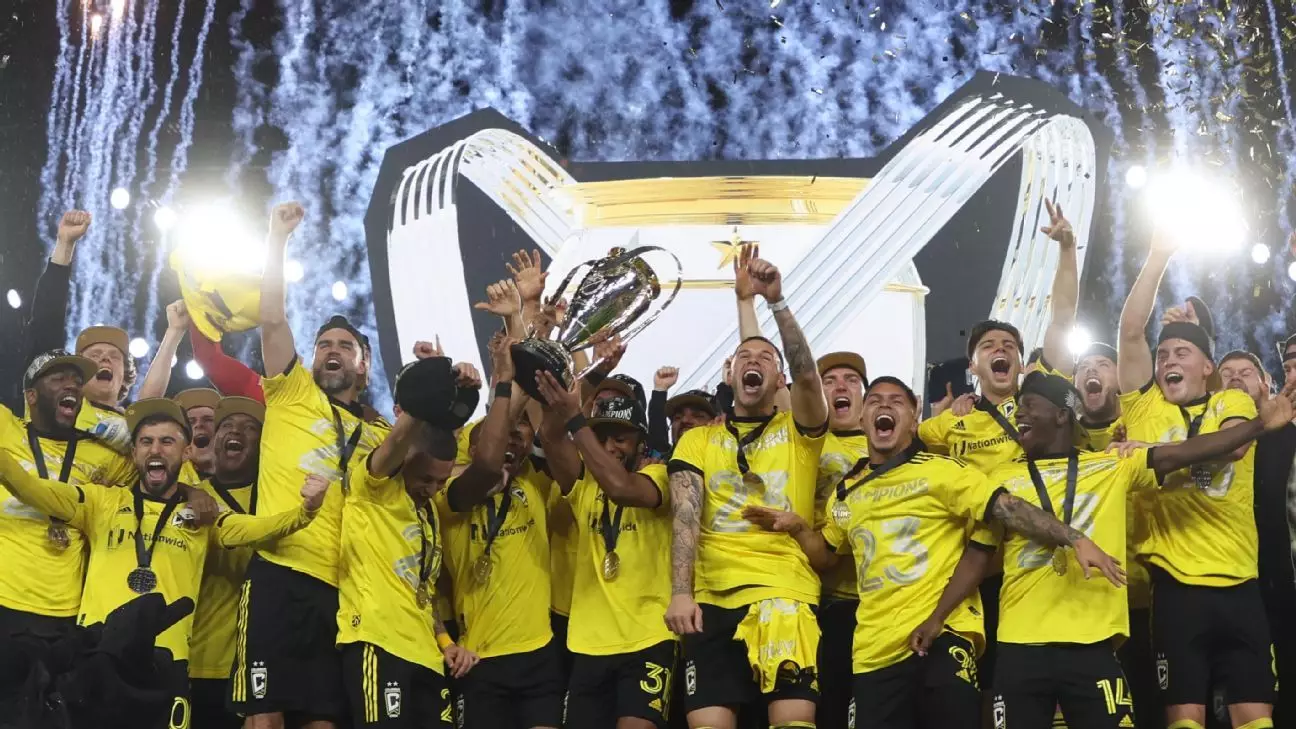Major League Soccer (MLS) has evolved significantly since its inception in 1996, and at the heart of this development is the annual MLS Cup. This championship match serves as the concluding battle of the MLS playoffs, showcasing the top teams from the Eastern and Western Conferences. Over the years, the MLS Cup has not only decided the league champion but has also become a symbol of the growth of soccer in the United States. This article delves into the historical significance, notable achievements, and the evolving nature of the MLS Cup.
The very first MLS Cup took place on October 20, 1996, marking a significant milestone for American soccer. D.C. United triumphed over the LA Galaxy with an electrifying score of 3-2. This match set the stage for a competitive league, igniting passion among fans and players alike. Since that memorable day, the MLS Cup has continued to engage audiences and impact the soccer culture in the U.S.
The evolution of the tournament reflects wider changes within the league itself, from the initial struggles of attracting crowds and nurturing talent to becoming a vibrant competition with an increasing global audience. The establishment of a structured playoff system has added layers of complexity and excitement, offering teams a chance to redeem themselves after the regular season.
Dominance and Legacy: Teams that Shaped the MLS Cup
Throughout the years, certain franchises have distinguished themselves through repeated success. The LA Galaxy stands out as the most decorated team in MLS Cup history, boasting five championships (2002, 2005, 2011, 2012, and 2014). Their prominence in the league’s narrative underscores the importance of consistent performance, showcasing how teams can effectively build legacies over time.
However, they are not alone; a total of seven franchises have claimed the Cup multiple times. D.C. United follows with four titles, while teams like the Columbus Crew, Sporting Kansas City, and the Houston Dynamo FC each hold two or three. This competitive landscape illustrates the diverse origins of success within MLS, challenging the notion that only a few teams could dominate.
Conversely, though the league has expanded significantly, many teams, such as the New York Red Bulls and the Philadelphia Union, continue to search for their first championship glory. The contrasting fates of teams evoke a sense of drama in the league, much like any other sporting competition filled with underdog stories and power struggles.
The award for winning the MLS Cup, the Philip F. Anschutz Trophy, serves as a testament to the league’s history and mission. Named after one of the co-founders of MLS, the trophy symbolizes not only victory but also the growth and potential of soccer in North America. Teams aspire to lift this prestigious award, which has seen countless players rise to fame by playing pivotal roles during the final match.
This trophy is more than a piece of silverware; it’s a key to international opportunities. The triumph in MLS Cup grants qualifying teams a berth in the Concacaf Champions Cup, allowing for a chance to showcase American soccer on a more global stage. This connection further elevates the tournament’s importance beyond national borders.
Another aspect that adds intrigue to the MLS Cup is the Most Valuable Player (MVP) award, which honors individual performances during the championship match. Players like Landon Donovan and Marco Etcheverry have left indelible marks on the tournament’s rich history, demonstrating how individual brilliance can shine even amidst the high pressures of a championship setting.
The celebration of exceptional talent reflects a larger trend within MLS post-season, where crucial plays and dramatic moments often define the legacies of players and teams. To relive these moments is to recognize the heart and soul poured into these matches, forever capturing the essence of competition and achievement.
As Major League Soccer continues to expand, the MLS Cup will undoubtedly evolve alongside the sport itself. The growing number of teams and increasing levels of competition are set to enrich the narrative surrounding this championship. More importantly, the mentorship and investment into youth soccer will ensure the pipeline of talent continues to flow.
The MLS Cup stands as a beacon of achievement, growth, and challenge in American soccer. With each season unfolding fresh narratives and potential champions, the legacy of MLS Cup will inspire future generations of players and fans alike, enriching the tapestry of soccer in the United States. As the league moves into an exciting future, the anticipation for another thrilling chapter of the MLS Cup waits on the horizon.
